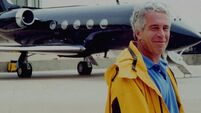North Korea backs out of train tests with South
North Korea today abruptly cancelled groundbreaking test runs of trains across its highly-guarded border with South Korea, citing an atmosphere of confrontation and war.
South Korean Vice Unification Minister Shin Eon-sang described the last-minute, unilateral delay of trial runs scheduled for tomorrow as “very regrettable” and said South Korea would take necessary steps, but didn’t elaborate.














